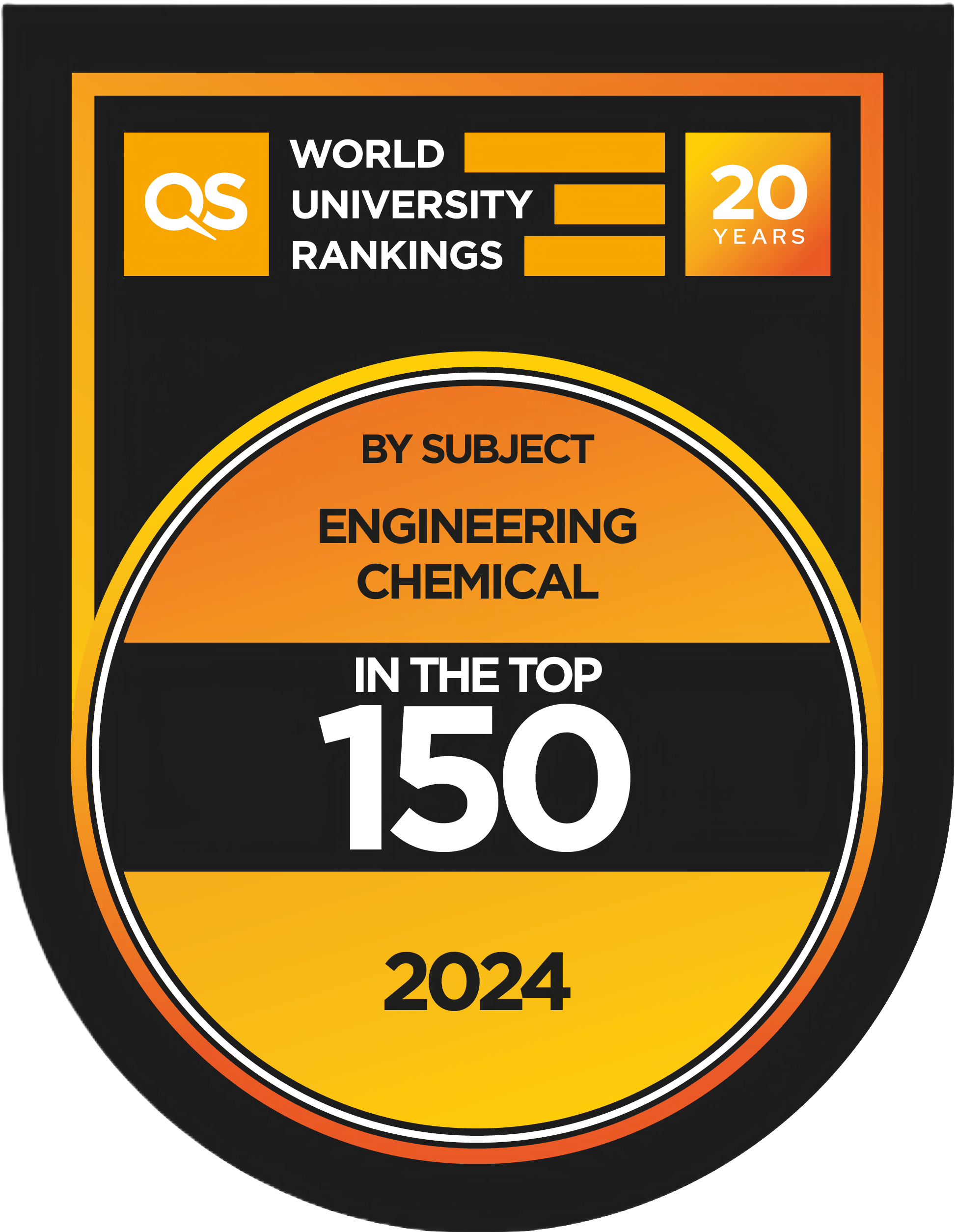Introduction
Chemical Engineering focuses on the application of engineering principles to the design, construction and operation of industrial processing plants. A chemical engineer generally works at any industrial processing plant such as those dealing with petrochemicals, chemicals, pharmaceuticals, semiconductors, food processing and other related industries. The job involves supervision of plant operation and maintenance, troubleshooting operational problems related to process, and undertaking plant modification work for process operability and safety improvement.
The Bachelor of Chemical Engineering with Honours programme stresses the need for a strong foundation in Mathematics, Physics and Chemistry, followed by a thorough coverage of basic engineering courses such as Fluid Mechanics, Thermodynamics and Mass & Heat Transfer. In the later years of study, students are exposed to Unit Operations, Reaction Engineering, Safety & Environment, Process Control and Process Design. In addition to the above, at the end of their studies a student will have the opportunity to take special topics in one of these selected areas of interest:
-
Environment and Sustainable Engineering
-
Process System Engineering
-
Processing Industry
-
Process Plant Safety
-
Renewable Energy
-
Integrated Programme Leading to Master of Science in Process Safety


Programme Educational Objectives
- Engineers who are competent with the potential to become leaders in chemical process and related industries.
- Engineers who are committed to sustainable development of chemical process and related industries for the betterment of the society.
Programme Outcomes
- Apply knowledge of mathematics, natural science, engineering fundamentals and engineering specialisation to the solution of complex engineering problems.
- Identify, formulate, conduct research literature and analyse complex engineering problems reaching substantiated conclusions using first principles of mathematics, natural sciences and engineering sciences.
- Design solutions for complex engineering problems and design systems, components or processes that meet specified needs with appropriate consideration for public health and safety, cultural, societal, and environmental considerations.
- Conduct investigation of complex engineering problems using research-based knowledge and research methods including design of experiments, analysis and interpretation of data, and synthesis of information to provide valid conclusions.
- Select and apply appropriate techniques, resources, and modern engineering and IT tools, including prediction and modelling, to evaluate complex engineering problems, with an understanding of the limitations.
- Apply reasoning informed by contextual knowledge to assess societal, health, safety, legal and cultural issues and the consequent responsibilities relevant to professional engineering practice and solutions to complex engineering problems.
- Evaluate sustainability and impact of professional engineering work in the solutions of complex engineering problems in societal and environmental contexts.
- Apply ethical principles and commit to professional ethics and responsibilities and norms of engineering practice.
- Function effectively as an individual, and as a member or leader in diverse teams and in multi-disciplinary settings.
- Communicate effectively on complex engineering activities with the engineering community and society.
- Demonstrate knowledge and understanding of engineering management principles, economic decision making and entrepreneurial skills to manage projects in multidisciplinary environments.
- Recognise the need for, and have the preparation and ability to engage in independent and life-long learning in the broadest context of technological change.
Graduation Requirements
In order to graduate with the Bachelor of Chemical Engineering with Honours degree, students are required to obtain a minimum of
144 credit hours and a minimum CGPA of 2.00/4.00.
|
Course Group (G) |
Number of Credit Hours |
| NR - National Requirement |
10 |
| UR - University Requirement |
15 |
| CC – Core Common |
24 |
| CD – Core Discipline |
72 |
| CI – Core Industrial Internship |
14 |
| CSp – Core Specialisation |
9 |
|
TOTAL |
144 |

